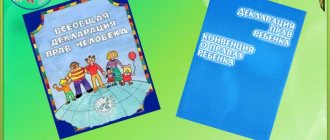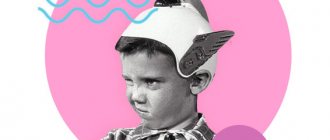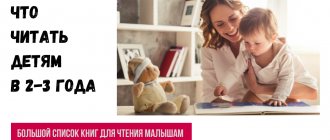Law is a concept from jurisprudence, which implies a set of norms and rules established by the state to regulate relations in society. Prescriptions allow a person to act in one way or another, to demand respect for rights in relation to himself.
Children, until they reach adulthood, are dependent on their parents or guardians. Due to their age, they cannot make certain decisions regarding their own lives. In order to protect young members of the legal society from possible dangers and attacks, the rights of the child are regulated by laws.
The individual rights and freedoms of children are legally secured. In this article we will study in detail the rights of minors of all ages, the documents regulating them, government guarantees, and penalties for failure to comply with norms and requirements.
Content:
- Features of children's rights
- Basic rights of a child in Russia What general rights does a child have in our country?
- Rights of the child in the family
- Social rights of the child
- Personal rights of a child
- Property rights of children
- Child's rights to child support
- About labor rights
- Right to medical care
The child’s right to creative development
According to the Russian Law “On Education”, any child can apply for an individual approach in kindergarten, as well as the identification of his talents and their development. To do this, educators are required to carry out creative activities (drawing, modeling), which cannot be monotonous, and there must also be no discrimination based on the level of ability on the part of the teacher.
Important! The lack of developmental creative activities is a direct violation of the rights of a preschool child.
Features of children's rights
According to the Convention on the Rights of the Child, approved by the UN General Assembly in 1989, a child is any person under eighteen years of age. From birth, children receive equal rights and freedoms. Discrimination based on gender, country of birth, nationality, race, religion, language, or financial status is unacceptable. Considering the immaturity of the physical and psychological plane, children need special protection, care, and protection of the state.
Human life is in the leading position in the hierarchy of values. The right to life is recognized as a fundamental basic good. The Constitution of Russia (Article 20) enshrines the right of every person to life.
A citizen of the Russian Federation is endowed with legal capacity by birth. Protecting children's rights begins even before this moment. An unborn child is endowed with conditional legal capacity before birth . He is a contender for inheritance (Civil Code of the Russian Federation, Art. 1166). The division of property can be done after the birth of an heir. According to the Family Code of the Russian Federation, divorce does not entail changes in the rights of the child, including the unborn (Article 30). Consequently, Russian law gives the child certain rights after the fact of conception has been established. The embryo is protected by laws regulating the medical field and social norms.
Protecting children's rights, providing opportunities to develop, learn, and socialize are important tasks for Russia. Parents and guardians must convey to children information about their rights, instill self-respect, and cultivate belonging to a legal society. The child is a citizen of the Russian Federation of no less importance, and equality between members of society is regulated by the Constitution of the Russian Federation.
What documents contain the rights of a child?
The main documents defending children's interests in Russia:
- Constitution. The basic law of the state regulating the rights of citizens regardless of age. Children are granted legal capacity upon birth.
- Family code. Set of rules for regulating family norms. Contains social, personal, property rights of children.
- Criminal Code. Determines the degree of criminal offenses and penalties for juvenile offenders.
- Federal Law N 124-FZ “On basic guarantees of the rights of the child in the Russian Federation” (06/24/1998). An expanded set of rules regarding the protection of the rights of the child in the field of life support, study, social adaptation, and health improvement.
- Federal Law N 273-FZ “On Education” (December 29, 2012). It justifies the child’s right to education in various institutions, determines the level of responsibility of parents or guardians for the child’s education.
- Federal Law N 159-FZ “On additional guarantees for social support for orphans and children left without parental care” (December 21, 1996). The document establishes standards for the upbringing and maintenance of children who have lost their breadwinners.
- Federal Law N 181-FZ “On social protection of disabled people in the Russian Federation” (11/24/1995). Regulates the freedoms of children with developmental disabilities.
- Regulatory documents formed by the constituent entities of the Russian Federation and self-government bodies. Laws on the education of children that do not contradict the Constitution and Federal Laws, issued locally.
- Charters of preschool educational institutions, schools. Educational institutions can draw up their own regulatory documents containing standards regarding behavior, appearance, and methods of teaching children. They are also subject to the basic laws of the Russian Federation.
In addition to the main regulations, there are targeted state programs to create favorable conditions for the growth and development of children. All regional laws are adopted in accordance with the main provisions of the country and international laws.
Can parents protect children in preschool institutions?
It is parents who can and must ensure that the rights of their children in preschool educational institutions are not violated. When choosing a kindergarten, mothers and fathers are obliged to check the level of qualifications of the teachers to whom they will take their children. If, after the first visit to kindergarten, the baby is capricious at home, refuses to sleep, or cries for no reason, then a feeling of discomfort is obvious. Parents should closely monitor the baby; if after 3-4 days his behavior does not change, nervousness increases, talk to the teachers. If after the conversation nothing changes and the child refuses to go to kindergarten, look for another preschool institution for him.
Basic rights of the child in Russia
Ignorance of the law does not exempt you from responsibility, and ignorance of personal rights does not exempt you from violating them. Often the rights of minor children, enshrined in the basic laws of the country, are not respected or are not fully respected.
What general rights does a child have in our country?
A minor child in the Russian Federation is entitled to the following rights:
- life and upbringing in the family;
- protection of interests;
- communication with parents and relatives;
- expressing one's own opinion;
- name and its change;
- education;
- medicine;
- property.
Rights of the child in the family
Families, as structural units of society, are protected by the state. The main provisions are fixed in the Family Code. Regulatory acts regulate family relations and protect the rights of adults and minors.
Basic family rights of a Russian child:
Children have the right to live in a family, to be raised and cared for by their parents (Article 54 of the RF IC of 1995)
Staying in a family is a significant factor in the development of an individual’s personality. A full member of society must have high moral principles. Moral standards must be instilled by parents. The decision to remove a child from the family can be approved by the court if it is in his interests, or if being with his parents threatens life and health.
Placement into care of relatives or another family is possible only with the consent of the parents, if they have parental rights to the child. In case of divorce, children over 14 years of age independently choose which parent to remain with.
The right to freely communicate with relatives and parents
Communication with blood relatives, including grandparents, brothers, sisters, helps to grow in a friendly atmosphere and cultivate family values. It is impossible to protect children from contact with relatives in the event of a quarrel, divorce, or move. If the child’s right to unhindered communication is violated, relatives can file a complaint with the guardianship authorities. If the decision is not enforced, you can go to court.
The child has the right to be protected by his parents
They are the ones who represent interests legally. Parents are obliged to act in the interests of the minor, to defend his rights in court and in everyday situations. Family law is designed to protect children from the dishonest performance of their duties by parents. If a citizen of the Russian Federation notices a violation of the rights of a child, he should contact the guardianship authorities with a complaint. The case will be reviewed by regulatory authorities.
Always take care of your children, even when you are not in the immediate vicinity! Know where your child is, what route he is taking, what he is doing and what is happening around him with the Where are My Kids app.
Social rights of the child
Children are entitled to social security. A child under 18 years of age who becomes an orphan due to the death of their breadwinners or deprivation of parental rights is transferred to another family or an orphanage to be raised. The first case involves maintaining the child at the expense of the trustee or guardian, the second - at the expense of state funding.
Minor children left without parents must be sent to institutions for the prevention of neglect (Federal Law of the Russian Federation “On the fundamentals of the system for the prevention of neglect and juvenile delinquency”, edition 04/24/2020). For preventive purposes, homeless children, vagrancy, drug use, and children who have committed offenses and criminal offenses are subject to forced detention in special institutions for preventive purposes.
According to Federal Law No. 159-FZ “On additional guarantees for social support for orphans and children left without parental care” (dated December 21, 1996), children without parents are entitled to benefits for education, medical services, and property. Social protection is carried out by government agencies and regional self-government bodies in the field of children's law.
Personal rights of a child
Personal non-property rights of children include:
Opportunity to express your opinion
The child’s wishes are taken into account when resolving issues that directly affect his interests. In judicial or administrative proceedings, the opinion of children who are ten years old is required to be heard. Verdicts against the will of the child can be accepted only in exceptional cases when the child wants something that is contrary to his interests.
Change of full name
The surname is passed on to the child from the parents. If spouses have different surnames, they choose the appropriate option at their own discretion, just like the name. Disagreements on this issue are resolved by the guardianship authority or trustee. Up to the age of 14, parents can change the surname and first name of their children with the permission of a social worker. The procedure cannot be carried out unilaterally, for example, if one parent does not agree. The following circumstances are exceptions:
- lack of parental rights;
- failure to pay child support;
- unknown location;
- inparticipation in the educational process.
From the age of 10, when changing a name, the child’s opinion must be taken into account. The guardianship authority will consider how justified and valid the reasons for the event are. The decision will be made in the interests of the minor citizen.
The change of patronymic is carried out by court decision. A weighty argument is the adoption process. The presence of a living father, whose last name is indicated on the birth certificate, will become an obstacle to a decision in favor of the adoptive person if the father has parental rights.
When a child turns 14 years old, he has the right to independently submit an application for a name change to the registry office. You can change your full name or only part of it. The document will need to explain the reason for this decision. A mandatory requirement is a written, notarized agreement of both parents (in case of a complete family).
If the parents do not agree to change the name, a child over 14 can apply to the court to resolve the issue. The document must be submitted to the registry office. Alternative legal options for a minor to change their name are emancipation (with confirmed employment and recognition of legal capacity) or marriage.
Right to freedom of religion and assembly
A child, like an adult citizen, is endowed with freedom of belief regarding God. Article 28 of the Constitution of the Russian Federation guarantees freedom in terms of choosing religion. By age, the child does not have developed critical thinking and a sufficient amount of knowledge, therefore he is easily influenced by the environment and various manipulations. Parents, educational institutions, and others are prohibited from forcing children to participate in religious gatherings against their will. Thus, the law prevents the exertion of moral and psychological pressure on minor citizens.
Property rights of children
The Civil Code regulates the rights of the child regarding the disposal of personal property (Art.,). From the age of 14, children are allowed to enter into transactions with written permission from a parent or guardian. Personal earnings and scholarships can be used at the discretion of the minor without written certification.
Children under fourteen cannot dispose of property. This right is transferred to their parents or guardians. The exception is small household purchases. The powers of parents in property transactions are regulated by the Civil Code of the Russian Federation (Article 37). The article contains a list of restrictions on the disposal of the property of a minor ward. Without the consent of the guardianship authorities, parents and guardians cannot sell, rent, or donate the child’s property.
Children have the right to use the property of their parents when living together with them by mutual consent (RF IC, Article 60).
Minor members of society are endowed with inheritance rights. A child may receive property by inheritance, will, or as a gift. Also, children are heirs of the second priority, if there are no primary heirs.
Child's rights to child support
The maintenance of the child is entrusted to the parents and other family members. If money for maintenance is not received from one or two parents, the court imposes a forcible penalty. The amount of alimony depends on the official salary and income. One child is entitled to ¼ of the income. The amount of penalties increases proportionally depending on the number of children. It is possible to reduce or increase the amount of alimony by court order.
If a parent receives money irregularly, a fixed monthly amount is established for the child's life. The funds go to the bank account of the parent or guardian with whom the child actually lives. The money received must be spent exclusively on the needs of the little citizen (Article 60 of the Family Code of the Russian Federation).
Are there ways to find out about a violation of a child's rights?
Parents are the main defenders of their child's rights. They must know his rights and monitor their proper implementation. But this is not so easy to do; the child may come up with unnecessary circumstances or, conversely, out of fear, try to hide the unpleasant fact of the violation. The latter can be used by a careless teacher to continue his free treatment of the baby. But there are still some ways:
- a parent can talk confidentially with their child . If this does not help, play role-playing games where the child mirrors the teacher’s behavior;
- anxiety, restlessness, tearfulness and nervousness should alert any parent . The child may also refuse to go to kindergarten. It is necessary to find out the reason, perhaps even through a psychologist;
- Nowadays, parents of children from the same group often create a chat in instant messengers, where they can check with other parents about similar cases with their children in order to compare information. Before entering a particular kindergarten, you can communicate with parents in groups on social networks, collect feedback;
- parents have the right not only to come to the children's institution before admission and inspect the group, but also to ask for food certificates . The teacher does not have the right to refuse the parent this. However, if this happens, the parent can file a complaint with the head of the preschool educational institution.
Rights of the child from birth and by age
The legal status of a child changes as they grow older. The older the little citizen, the more rights to independent actions and decisions he acquires. Let us briefly consider the gradation of children’s rights in the Russian Federation depending on age:
- 1.5 years. The child has the right to attend the nursery.
- 3 years. Children can be sent to kindergarten.
- 6 years. The child receives the right to attend school (the Constitution of the Russian Federation) and make small household purchases (office supplies, groceries). He can enter into transactions to dispose of funds provided by legal representatives, with their consent. Any transactions can also be concluded with the aim of receiving benefits free of charge, which do not require notarized confirmation.
- 8 years. Children can participate in public associations (Federal Law No. 82-FZ “On Public Associations” dated May 19, 1995).
- 10 years. The right to express an opinion appears, which may affect the change of name, place of residence with one of the parents, or adoption.
- 14 years old. At this age, the list of rights increases significantly. Upon turning fourteen years old, a child has the right to change citizenship, cancel adoption, dispose of personal earnings at his own discretion without parental consent, and bear responsibility for transactions made. You can independently dispose of the results of intellectual activity and protect your personal interests in court. You can work part-time after school.
- 15 years. A teenager can get a job and make decisions about medical interventions.
- 16 years. If there is a good reason, you can get married. This will require permission from local authorities. At the age of sixteen, teenagers can become members of cooperatives.
- 18 years. Young people are becoming adults.
What is the Convention?
This document was adopted by the UN, and it is far from the only normative act that touches on the topic of “Children’s Rights”. European countries pay significant attention to the problem of protecting preschool children, realizing that at this age they are unable to stand up for themselves on their own. Any civilized state has its own regulatory documents that list the rights of the child (in kindergarten, in particular).
Responsibility for violation of children's rights
Most often, the violators of children's rights are parents themselves, family members, teachers, peers, and officials. Let's look at the most common offenses against children:
Violation of the right to family life
Proof of this is the number of street children and juvenile delinquency. According to statistics from the Prosecutor General's Office on the state of crime in Russia, the number of crimes against minors is increasing every year. By law, parents are obliged to provide their child with normal conditions for development and upbringing. The presence of a large number of children in special institutions with living parents, deprived of parental rights or evading responsibilities, confirms the number of violations of this child’s right.
Violation of the right to education
The lack of normal living conditions is closely related to studies. Neglected children from low-income families often do not attend educational institutions. Citizens are required to receive secondary general education in any case. Failure by parents to fulfill their obligations to support and raise a child is considered an administrative offense (Administrative Code of the Russian Federation, Article 5). The amount of the established penalty varies between 100-500 rubles. If a repeated offense is recorded, the fine increases to 4000-5000 rubles.
Violation of rights to decent content
Material costs fall on the shoulders of the parents. According to statistics from the bailiff service for 2021, in the first 6 months the department received 1.2 million requests for the collection of alimony in the amount of 167 billion rubles. As of 2021, every third person evades paying money for child support . Men make up the majority of defaulters (about 78%). Many even close private businesses to reduce official income or quit their jobs so as not to pay alimony.
Civil liability is enshrined in the Civil Code of the Russian Federation (Article 5.35.1). A penalty of 0.5% is charged daily from the resulting amount of the defaulter’s debt. An administrative penalty in addition to the specified penalty additionally provides for the payment of a fine in the amount of up to 2,500 rubles.
According to the Criminal Code of the Russian Federation, Article 157, malicious evasion of alimony payments entails criminal liability. Punishment includes correctional labor for up to 1 year, compulsory labor for up to 180 hours, arrest for up to 3 months. The court has the right to deprive the defaulter of parental rights.
If the amount of alimony debt exceeds 10,000 rubles, the bailiff may impose a ban on traveling abroad. There is also a ban on re-registration of movable and immovable property and the use of a driver’s license. If the debt exceeds 3,000 rubles, the property may be seized and subsequently sold. For particularly persistent defaulters with large sums, bailiffs are allowed to use several measures simultaneously.
Violation of property rights
Children's rights to housing are protected by the norms of family, housing, and civil law. Parents often act contrary to the interests of their children, against the law. The reason for this is dishonesty, irresponsible attitude and financial insolvency. The child retains the right to housing owned by the parents, even after the divorce.
The sale of housing with registered minors is illegal (Article 167 of the Civil Code of the Russian Federation). The consent of the guardianship authorities acts as an insurance factor, but in court the purchase and sale transaction can easily be declared illegal. Guardianship authorities allow the sale of real estate in the event of purchasing children of equivalent housing. Since it is impossible to control this in advance, a violation of rights can only be challenged after the fact. To do this, you will need to collect evidence. Due to their age, young citizens cannot defend their rights, and after a long time it is very difficult to prove they are right.
Child abuse
Abuse includes all forms of physical and psychological violence, including beatings, insults, sexual assault, and neglect. A complete list is not recorded in the law due to the variety of factual circumstances under which a minor may suffer.
Families with children exposed to violence from parents or other persons should be monitored by the authorities for the prevention of juvenile delinquency. Any citizen has the right to contact the police if illegal actions against a child are detected. If measures are not taken, citizens have the right to write a statement to the prosecutor's office.
For physical violence in the form of beatings, torture, and other physical influence, criminal liability is provided (Chapter 16 of the Criminal Code of the Russian Federation).
Prohibition to communicate with parents and close relatives
If the ban on communicating with relatives is contrary to the interests of the child, an administrative fine of 2-3 thousand rubles is possible. The same applies to concealing the location of children against their will, failure to comply with a court decision at the child’s place of residence.
Violation of sexual integrity of children
Children are vulnerable members of society in need of protection. They often do not understand the nature and illegality of the actions committed against them, therefore they need the protection of the state especially carefully.
According to the Russian Ministry of Internal Affairs, the number of sexual crimes involving minors has increased by 42% over 5 years. Every 6th crime is committed in the family. One in twelve children suffers from parental sexual abuse.
Crimes against sexual integrity are regulated by the Criminal Code (Chapter 18). Rape is punishable by imprisonment for a term of 3 to 20 years, depending on the severity of the crime and the consequences. Additionally, the offender’s rights to hold certain positions and conduct activities related to children may be limited. For especially serious crimes committed against children under 14 years of age, the court may impose life imprisonment.
Punishments for indecent acts are specified in Article 135 of the Criminal Code of the Russian Federation. If a child aged 14-16 years is injured, imprisonment for a term of 3 to 8 years is provided. Gang violence, as well as crimes committed by previously convicted persons, are punishable by imprisonment from 5 to 20 years.
Violation of information security of children on the Internet
Children are protected by law from information that could harm their physical and psychological health. Such information includes incentives for violence, suicide, and the use of drugs. It is prohibited to disseminate information to the masses that refutes family values.
In 2021, the law tightened liability for violating the information security of children on the Internet. An ordinary citizen faces a fine of up to 3,000 rubles, officials up to 200,000 rubles, legal entities – up to 600,000 rubles. respectively.
Child rights in kindergarten
A child is endowed with individual rights from the day of his birth. This is spelled out in detail in the UN Convention. Parents are obliged to monitor compliance with the prescribed laws and correctly defend their rights in the event of inadequate care for their children in preschool institutions.
Psychological comfort
While in an institution, a child has every right to comfortable conditions close to home. About 10 years ago, it was possible for a babysitter to reluctantly clean up the baby’s half-eaten porridge, with complaints and threats towards him. Today, kindergartens are modern, clean, equipped, and have all the necessary equipment for games and children’s development.
Of course, parents are more concerned about the emotional situation in institutions. It's not a matter of fancy equipment, but, first of all, relationships, respect for children, and meeting their requirements.
It is forbidden:
- prohibit the baby from going to the toilet if he persistently asks for it;
- threaten with refusal to go for a walk if the child does not finish the soup or spills it accidentally;
- divide children into best and worst , reproaching the latter for this;
- remove the child from games if he is guilty;
- separate him from the rest of his classmates by seating him in a corner on a separate chair;
- raise your voice, shout at the child , as well as use obscene language, counting on the fact that the children will not understand, and there are no adults or strangers in the room.
Psychological violence against children, pressure, humiliation, unfortunately, is still present in kindergartens. Parents need to deal with these problems, bring complaints to the head and, if necessary, go to the police and court.
The task of parents is to uphold the rights of children and protect them. Psychological discomfort is unacceptable; inaction, leaving problems unattended is a crime against children, you need to know and remember this.
Children's rights in kindergarten: what does the law say?
According to the laws adopted in the Russian Federation, a child has the right in a preschool educational institution to:
- health , if necessary, preschool institutions should provide medical care to children.
- development and realization of their creative and physical abilities in kindergarten. Teachers are required to develop children’s creative abilities, speech, and thinking, that is, conduct various classes and develop the abilities that every child has from birth.
- mental peace in the team , teachers should not allow cruel treatment of children, gross physical and sexual violence against them.
- There should be no emotional abuse . Remarks, threats, and offensive criticism towards one's children are unacceptable in a preschool educational institution, just as it is impossible to lie to children or deliberately isolate them from society. The method of education with raising the voice and shouting at children is considered by many to be quite normal and commonplace, but this is also a violation of the rights of the child. Impressionable children can quickly become traumatized, and psychological harm can affect them in the future.
International rights of the child
What documents regulate children's rights at the international level?
The main regulatory and legal international acts are:
- Declaration of Human Rights (11/10/1949).
- Declaration of the Rights of the Child (November 20, 1959).
- Convention on the Rights of the Child (11/20/1989).
- World Declaration on the Survival, Protection and Development of Children (30.09.2000).
UN Convention: Basic Principles
Let us briefly consider the essence of the Convention:
- Principle 1. All children, without exception, are covered by the Declaration.
- Principle 2. Children need to be provided with favorable conditions for life and development.
- Principle 3. The child receives a name and citizenship after birth.
- Principle 4. The child and his mother are required to be provided with prenatal and postnatal medical care, social security, as well as subsequent medical services.
- Principle 5. Children with developmental disabilities need specialized care and concern.
- Principle 6: Children need love and understanding. A child is most comfortable in a family. If a child is left without parents, the responsibility for his maintenance falls on the state.
- Principle 7: Children should receive an education. Basic education should be free for everyone.
- Principle 8: Children have the primary right to protection.
- Principle 9. Cruelty and exploitation of children, including labor activity before the legal age, is unacceptable.
- Principle 10. It is unacceptable to cultivate any type of discrimination when raising children.
Observation
In order to draw conclusions about the work of the organization’s employees, you can casually visit a preschool educational institution during a walk or class. At the same time, it is worth taking a closer look at the behavior of teachers. If they behave aggressively and yell at children, then this behavior should not be ignored.
On the other hand, a teacher who looks away aloofly while children push each other is also a serious offense.
Based on all this data, conclusions can be drawn about the work of the educational institution. If they cannot cope with their responsibilities, then it is necessary to take active action.
Guarantees of the rights of the child, protection of his interests. How are they protected in Russia?
In addition to the regulatory documents previously mentioned in the article, the following laws ensure the protection of the rights of the child:
- Federal Law No. 48-FZ “On guardianship and trusteeship” (04/24/2008).
- Decree of the President of the Russian Federation “On the concept of national security of the Russian Federation” (Article 170, 01/10/2000).
- Decree of the President of the Russian Federation No. 986 “On the Commissioner under the President of the Russian Federation for Children’s Rights” (September 1, 2009).
According to Decree of the President of the Russian Federation N 986 (as amended on January 15, 2019), the protection of children’s rights in Russia is carried out by the Commissioner for Human Rights, the Commissioner for Children’s Rights. These persons are appointed and removed from office by the President.
Scope of powers of children's ombudsmen:
- protection and upholding of the rights of a specific minor;
- preventive inspections of children's institutions for violations of children's rights;
- active participation in the formation of new legislative acts regarding children;
- writing proposals to improve mechanisms for legal protection of children;
- educational work among children, parents and legal representatives.
The Commissioner for Children's Rights of the Russian Federation is obliged to monitor the legality of the implementation of legislation by bodies of any organizational and legal form whose activities are related to the upbringing, education, medical care, health improvement, and safety of children.
The current family legislation has been brought into compliance with the international obligations of the Russian Federation. The protection of the rights of the child is entrusted to parents, guardians, and officials with appropriate powers.
What is child abuse?
The definition of “abuse” includes beatings, sexual, emotional or physical violence (for example, yelling, insults, humiliation). In kindergartens, violations of this kind occur quite often, and teachers consider it normal to shout at children, call them ugly names, and slap them in the face. If you find out that a child’s rights are being violated (examples of such situations are common), that is, some kind of violence was used against the child, transfer him to another preschool institution.







